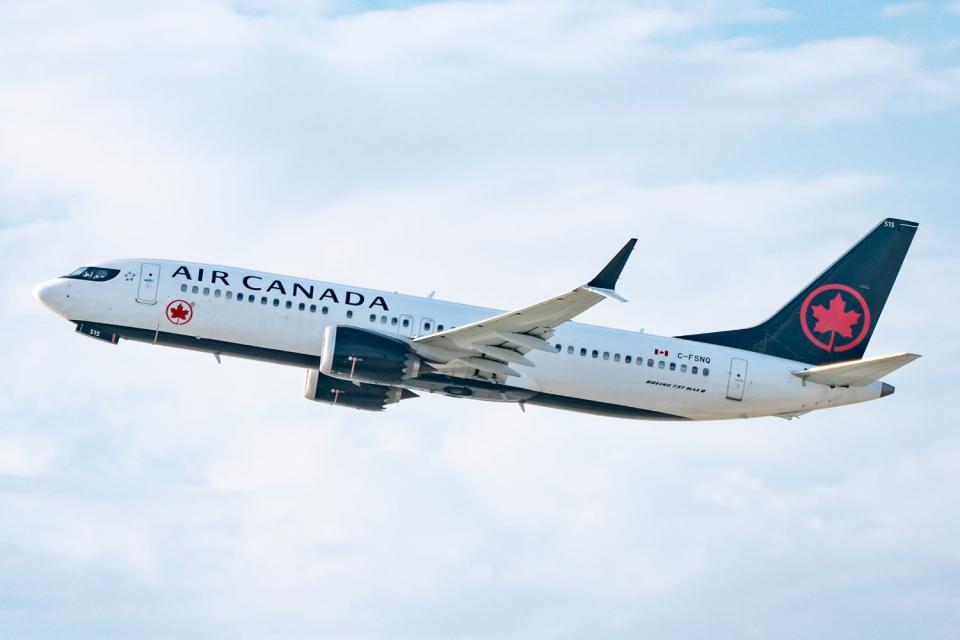Air Canada Denies Claim That Passenger Died Onboard 16-Hour Flight Because It Wasn’t Diverted
The airline tells PEOPLE that it "rejects any assertions that it was responsible for the customer's death"

AaronP/Bauer-Griffin/GC Images
Air Canada Boeing 737 MAX 8 takes off from Los Angeles international Airport on July 30, 2022 in Los Angeles, CaliforniaA man died on a 16-hour flight from India to Canada, which his daughter claims wouldn’t have happened if the plane had been diverted. However, Air Canada said a flight diversion "was not recommended."
Shanu Pande told the CBC that she had been traveling on the Air Canada flight in September with her father, 83-year-old Harish Pant, when he developed symptoms like chest pain, back pain, vomiting, loss of bowel control and the inability to stand up.
"He was deteriorating in front of my eyes," Pande told the outlet, noting that his symptoms began seven hours into the flight as they were somewhere above Europe.
She said she had pleaded with the flight crew to divert the plane so that her father could disembark and get some medical help at a hospital. However, she said the flight continued for nine more hours on its scheduled path before landing in Montreal, Canada.
Paramedics were on site to help her father after they landed, but she told CBC that by then her father couldn’t be saved. He had died while paramedics worked on him. "I was very hysterical. My mind was gone at this point," Pande noted to the outlet.
Pande told CBC, “He was at the mercy of the pilot and Air Canada people," and claimed that the staff was “inhumane and callous."
In response, Air Canada told PEOPLE in a statement that while it “extends to them its deepest sympathies” to the family, it also “rejects any assertions that it was responsible for the customer’s death.”
Related: Texas Airport Worker Who Was 'Ingested' into Plane Engine Died by Suicide, Medical Examiner Rules
“We can confirm that throughout the flight in question Air Canada’s crew properly followed the procedures for dealing with onboard medical events and provided continuous care for the passenger, including relocating him to the business cabin so he could fully recline,” the airline said.
“It is important to note that based on careful consultation with the ground-to-air medical team, diversion was not recommended. The individual was conscious upon arrival, where we had arranged for paramedics to meet the aircraft,” they continued. “Unfortunately, shortly after arrival, the passenger passed away while being attended to by the paramedics.”
Never miss a story — sign up for PEOPLE's free daily newsletter to stay up-to-date on the best of what PEOPLE has to offer, from celebrity news to compelling human interest stories.
Air Canada also noted that it has processes in place to “manage onboard medical events” which include “soliciting for medical personnel onboard” and accessing a “Transport-Canada approved onboard medical kit.” The airline said crews also have access to a “specialized ground-to-air, third-party medical provider” which flight crew can communicate with to “evaluate the passenger and devise a care plan.”
“Based on the advice of medical experts, we will divert an aircraft to a nearby airport with appropriate medical facilities to obtain care without hesitation if needed, something we do 40 times a year on average,” the airline continued.
For more People news, make sure to sign up for our newsletter!
Read the original article on People.

 Yahoo Movies
Yahoo Movies 
